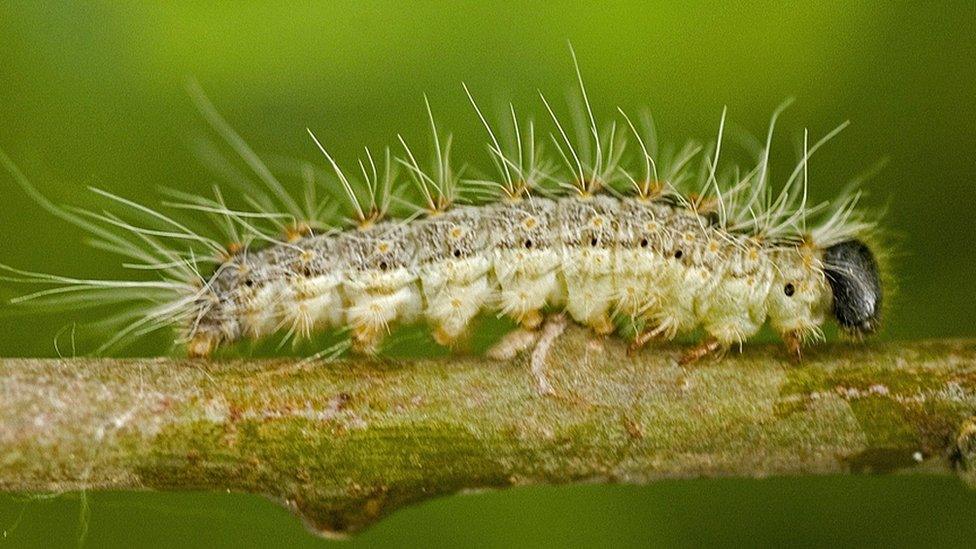Toxic caterpillar infestation 'could take years to tackle'
- Published
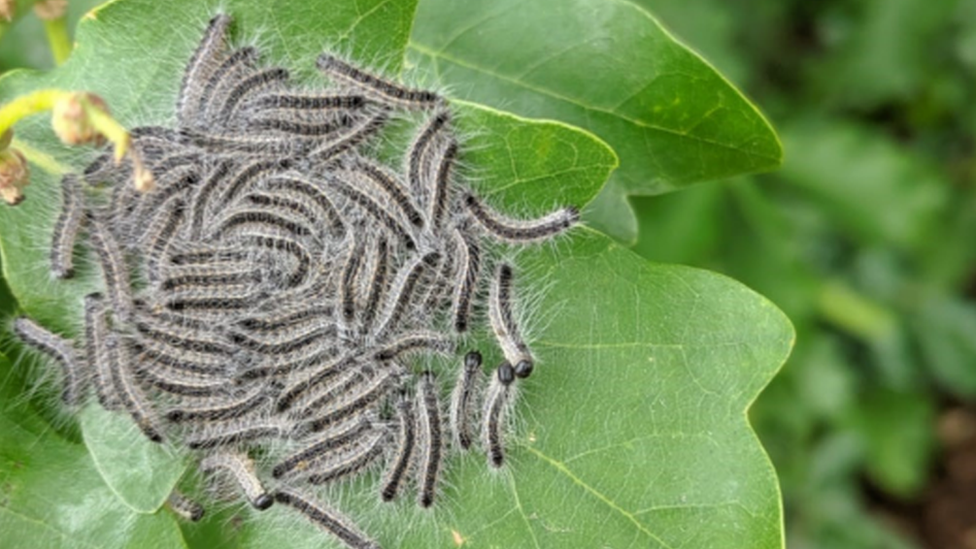
Insecticide is being used to kill the caterpillars in Long Eaton
Residents have been told it could take years to deal with an infestation of toxic caterpillars that can harm oak trees and irritate human skin.
Oak processionary moths have been spotted in Long Eaton, Derbyshire, prompting insecticide to be sprayed on trees.
The Forestry Commission held a public meeting in the town on Wednesday to discuss the problem.
It has urged people not to tackle the pests themselves but report them.
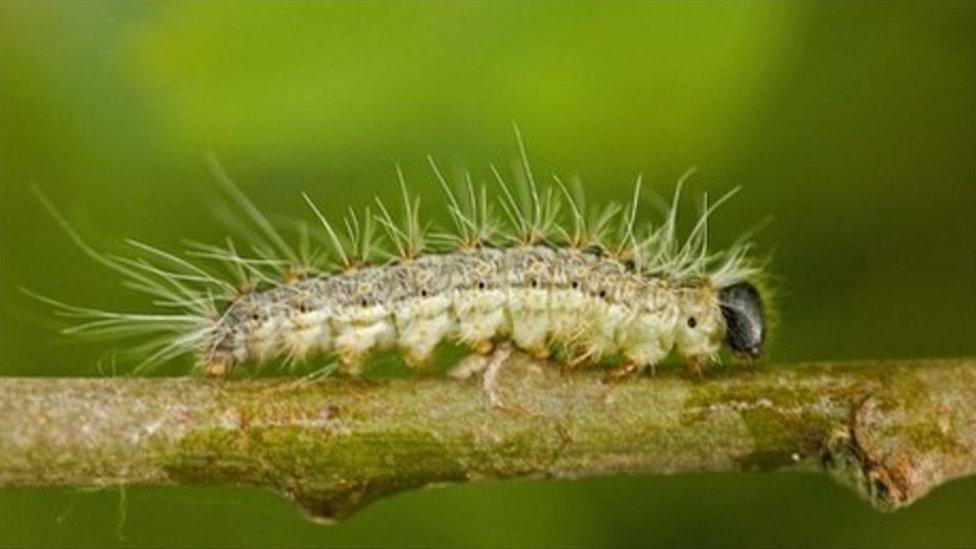
The oak processionary moth caterpillars are usually found in southern Europe.
Long Eaton resident Tim Howlett was contacted by scientists after the invasive species was seen in his garden by teams surveying the area.
Mr Howlett, a BBC Radio Derby sound engineer, said: "I assume they did some roadside evaluation and found them.
"They came and sprayed my tree but they said it would take a long time - three to five years possibly - to deal with the wider problem.
"It is not moth season at the moment but they said pheromone traps would be used to try and catch them."
Oak processionary moths caterpillars are about 1.5in (3.8cm) long, have black heads and grey bodies covered in long hair.
They are native to southern Europe but were first seen in the UK in London in 2006.
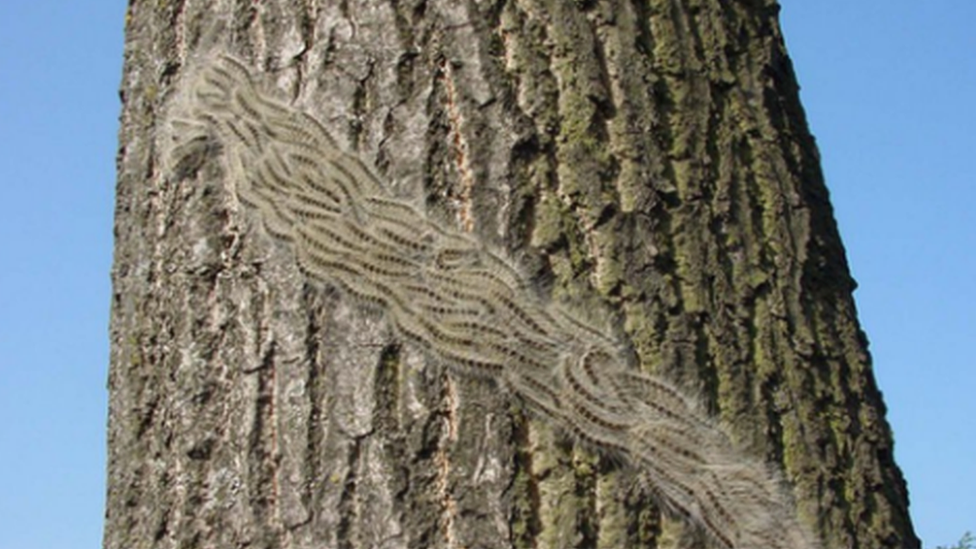
An infestation of the moth's caterpillars has been found in Long Eaton
The government has been trying to stop their spread since.
Forestry Commission oak processionary moth manager Andrew Hoppit said: "The hairs of this caterpillar can cause a nasty rash and breathing difficulties.
"Some people can be affected more than others.
"It's not going to kill you but it can be a very distressing experience."
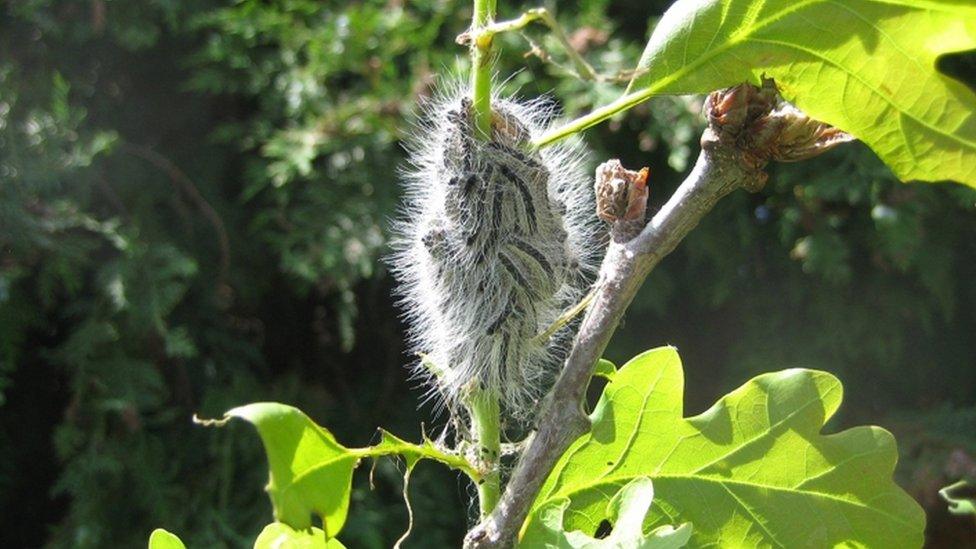
The caterpillars turn into pupae, then moths in late July
Mr Hoppit added: "These caterpillars feed exclusively on oak trees and can cause significant damage to the tree by reducing its leaf cover."
He said that could weaken the trees, making them more vulnerable to infection and drought.
He confirmed monitoring of the moths in Long Eaton would continue for five years.
Anyone who spots the pest is asked to report it via the Tree Alert portal, external.
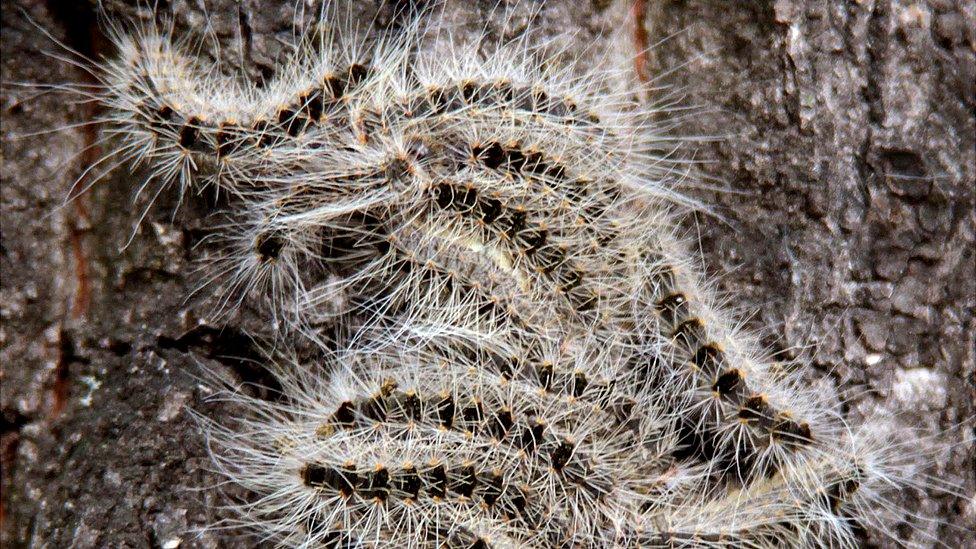
The caterpillars form big clumps and nests on oak trees

Follow BBC East Midlands on Facebook, external, Twitter, external, or Instagram, external. Send your story ideas to eastmidsnews@bbc.co.uk.
Related topics
- Published12 July 2023

- Published11 July 2019
